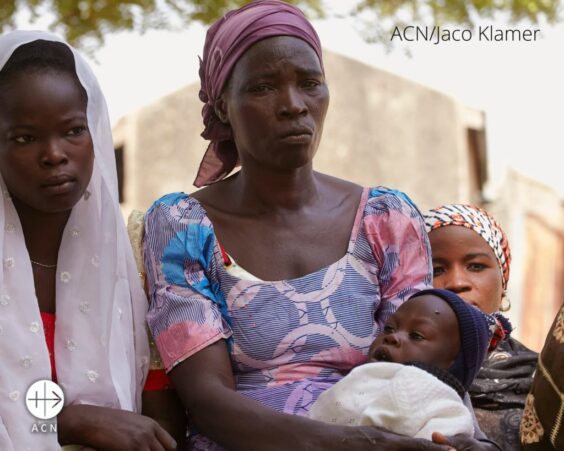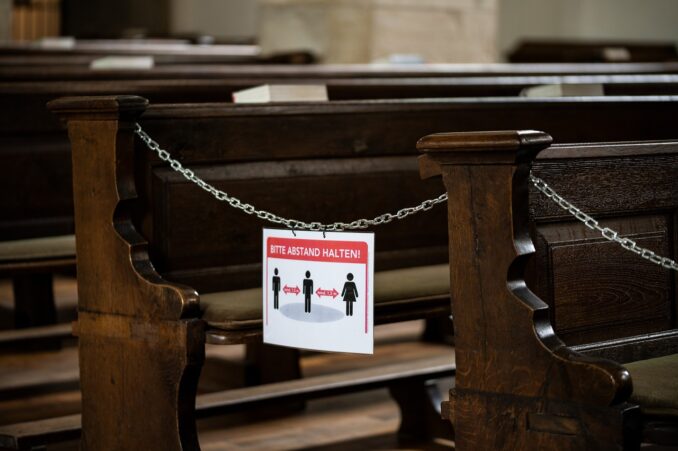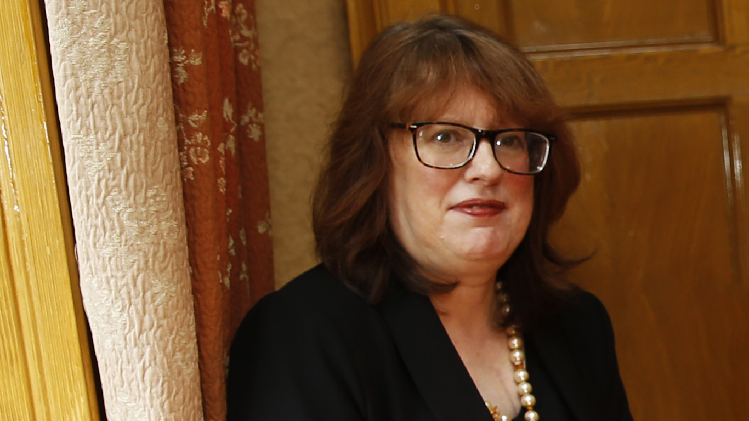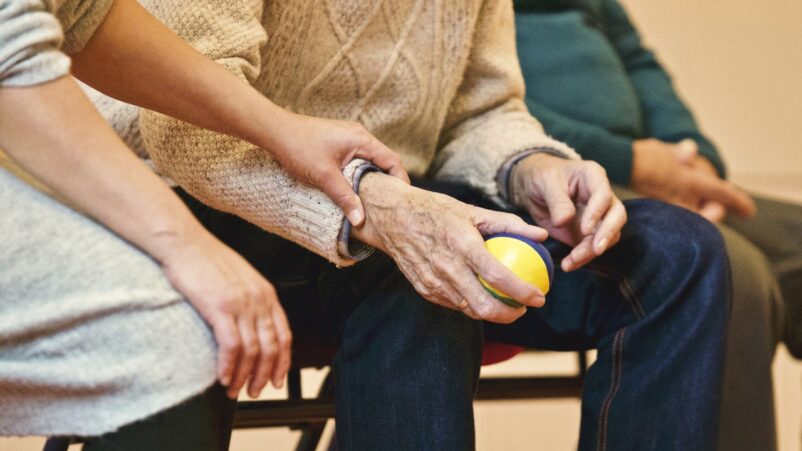Nel 2021 ho scritto una sessantina di articoli non accademici. 56 per il blog dell'Iona Institute, poi pubblicati anche su altri siti, e sette per I-Fam news, alcuni dei quali tradotti in cinque lingue.
January
1st January 2021
‘The morality of Covid vaccines’
http://www.positionpapers.ie/2021/01/the-morality-of-covid-19-vaccines/
4th January 2021
‘HSE letter whitewashes conflict between doctors over late term abortions’
https://ionainstitute.ie/hse-letter-whitewashes-conflict-between-doctors-over-late-term-abortions/
6th January 2021
‘HSE letter whitewashes conflict between doctors over late term
abortions’
https://theirishsentinel.com/2021/01/06/hse-letter-whitewashes-conflict-between-doctors-over-late-term-abortions/
8th January 2021
‘Contrary to popular belief religious men do more housework than the
norm’
https://ionainstitute.ie/contrary-to-popular-belief-religious-men-do-more-housework-than-the-norm/
14th January 2021
‘Legion of Mary humane response to the Mother and Baby homes’
https://ionainstitute.ie/legion-of-mary-humane-response-to-the-mother-and-baby-homes/
https://theirishsentinel.com/2021/01/14/legion-of-mary-humane-response-to-the-mother-and-baby-homes/
18th January 2021
‘New Zealand’s paradoxical attitude towards the protection of life’
https://ionainstitute.ie/new-zealands-paradoxical-attitude-towards-the-protection-of-life/
https://lbry.tv/@angelo.bottone:9/New-Zealand’s-darkly-paradoxical-attitude-towards-protecting-life:7 (longer version)
22th January 2021
‘Mother and Baby Homes report highlights how eugenics targeted unmarried
mothers’
https://ionainstitute.ie/mother-and-baby-homes-report-highlights-how-eugenics-targeted-unmarried-mothers/
https://theirishsentinel.com/2021/01/22/mother-and-baby-homes-report-highlights-how-eugenics-targeted-unmarried-mothers/
25th January 2021
‘How the 8th amendment saved hundreds of babies with down
syndrome’
https://ionainstitute.ie/how-the-8th-amendment-saved-hundreds-of-babies-with-down-syndrome/
https://lbry.tv/@angelo.bottone:9/BlogAntiabortionlegislationhassavedthousandsoflivesofpeoplewithDownSyndrome:c (slightly different
version)
29th January 2021
‘Canada’s terrible euthanasia warning for Ireland’
https://ionainstitute.ie/canadas-terrible-euthanasia-warning-for-ireland/
February
2nd February 2021
‘Pro-euthanasia
submissions show the slippery slope is real’
https://ionainstitute.ie/pro-euthanasia-submissions-show-the-slippery-slope-is-real/
5th February 2021
‘Assisted suicide submission sows confusion about passive euthanasia’
https://ionainstitute.ie/assisted-suicide-submission-sows-confusion-about-passive-euthanasia/
12th February 2021
‘Medical bodies unite in opposition to assisted suicide Bill’
https://ionainstitute.ie/medical-bodies-unite-in-opposition-to-assisted-suicide-bill/
13th February
2021
https://theirishsentinel.com/2021/02/13/medical-bodies-unite-in-opposition-to-assisted-suicide-bill/
16th February 2021
‘Why I believe I have a moral duty to be vaccinated’
https://ionainstitute.ie/why-i-believe-i-have-a-moral-duty-to-be-vaccinated/
19th February 2021
‘The immoral origins of certain cell-lines used in medical research’
https://ionainstitute.ie/the-immoral-origins-of-certain-cell-lines-used-in-medical-research/
23rd February 2021
‘Ireland one of only two EU countries banning public worship’
https://ionainstitute.ie/ireland-and-slovenia-the-only-eu-country-with-a-total-ban-on-public-worship/
March
2nd March 2021
‘How Belgium’s euthanasia law has been consistently abused’
https://ionainstitute.ie/how-belgiums-euthanasia-law-has-been-consistently-abused/
http://blog.iti.ac.at/2021/03/how-belgiums-euthanasia-law-has-been-consistently-abused/
3rd March 2021
‘Covid-19 mappa del culto
vietato, Ifamnews’
https://www.ifamnews.com/it/covid-19-mappa-del-culto-vietato/
8th
March 2021
‘Bringing hope to the persecuted Christians of
Iraq’
https://ionainstitute.ie/bringing-hope-to-the-persecuted-christians-of-iraq/
9th March 2021
‘COVID-19 und Kultusverbot: Übersicht der
Restriktionen in EU-Ländern’ https://www.ifamnews.com/de/covid-19-und-kultusverbot-bersicht-der-restriktionen-in-eu-l-ndern/
11th March 2021
‘Law lecturer says it is
not illegal for Catholics to receive communion during lockdown’
https://ionainstitute.ie/law-lecturer-says-it-is-not-illegal-for-catholics-to-receive-communion-during-lockdown/
12th March
2021
https://theirishsentinel.com/2021/03/12/law-lecturer-says-it-is-not-illegal-for-catholics-to-receive-communion-during-lockdown/
23rd March 2021
‘China is cracking
down on all religious believers including Christians’
https://ionainstitute.ie/china-is-cracking-down-on-all-religious-believers-including-christians/
27th March 2021
‘Axe is set to fall on
the right to life in Northern Ireland’
https://ionainstitute.ie/axe-is-set-to-fall-on-the-right-to-life-in-northern-ireland/
April
2nd April 2021
‘An update on the public worship restrictions around
Europe’
https://ionainstitute.ie/an-update-on-the-public-worship-restrictions-around-europe/
5th April 2021
‘Londra impone l’aborto a Stormont’
https://ifamnews.com/it/londra-impone-l-aborto-a-stormont
6th April 2021
‘Dutch euthanasia law
is deciding some lives are more worthy than others’
https://ionainstitute.ie/dutch-euthanasia-law-is-deciding-some-lives-are-more-worthy-than-others/
12th April 2021
‘Yet another report
downgrades the natural ties’
https://ionainstitute.ie/yet-another-report-downgrades-the-natural-ties/
14th
April 2021
‘Eutanasia, il Quarto Reich dei Paesi Bassi’
https://ifamnews.com/it/eutanasia-il-quarto-reich-dei-paesi-bassi
26th April 2021
‘Irish abortion
doctors reporting little disapproval from colleagues’
https://ionainstitute.ie/irish-abortion-doctors-reporting-little-disapproval-from-colleagues/
May
4th May 2021
‘Covid caused a bigger
decline in Catholic weddings than civil ones. Why?’
https://ionainstitute.ie/covid-19-caused-a-bigger-decline-in-catholic-weddings-than-civil-ones-why/
16th May 2021
‘Covid caused a bigger
decline in Catholic weddings than civil ones. Why?’ (Longer version)
https://gript.ie/covid-caused-a-bigger-decline-in-catholic-weddings-than-civil-ones-why/
Family Solidarity newsletter n. 92
11th May 2021
‘Why vaccine passports must not be compulsory’
https://ionainstitute.ie/why-vaccine-passports-must-not-be-compulsory/
24th May 2021
‘Pain relief must be compulsory for late term abortions’
https://ionainstitute.ie/pain-relief-must-be-compulsory-for-late-term-abortions/
28th May 2021
‘Push is on to make our abortion law even more permissive’
https://ionainstitute.ie/push-is-on-to-make-our-abortion-law-even-more-permissive/
June
6th June 2021
‘Why Europe needs a common day of rest’
https://ionainstitute.ie/why-europe-needs-a-common-day-of-rest/
14th June 2021
‘More Irish opting for eugenic abortion’
https://ionainstitute.ie/more-irish-opting-for-eugenic-abortion/
Family Solidarity newsletter n. 92
22nd June 2021
‘Catholic pupils now being bullied in schools’
https://ionainstitute.ie/catholic-pupils-now-being-bullied-in-schools/
https://www.thehookoffaith.com/single-post/catholic-pupils-now-being-bullied-at-school
Family Solidarity newsletter n. 92
25th June 2021
‘Catholic pupils now being bullied in schools’
https://theirishsentinel.com/2021/06/25/catholic-pupils-now-being-bullied-in-schools/
28th June 2021
‘All Irish MEPs vote in favour of declaring abortion a right’
https://ionainstitute.ie/all-irish-meps-vote-in-favour-of-declaring-abortion-a-right/
Family Solidarity newsletter n. 92
29th June 2021
‘Ireland’s abortion rate increased last year’
https://ionainstitute.ie/irelands-abortion-rate-increased-last-year/
Family Solidarity newsletter n. 92
July
3rd July 2021
‘Inghilterra e Galles, aborti record’
https://ifamnews.com/it/inghilterra-e-galles-aborti-record
7th July 2021
‘Record-high abortion numbers in England and Wales’
https://ifamnews.com/en/record-high-abortion-numbers-in-england-and-wales
‘Angleterre et Pays de Galles, avortements record’
https://ifamnews.com/fr/angleterre-et-pays-de-galles-avortements-record
12th July 2021
‘Northern Ireland sees a big jump in the number of abortions’
https://ionainstitute.ie/northern-ireland-sees-a-big-jump-in-the-number-of-abortions/
‘Rekordabtreibungszahlen
in England und Wales’
https://ifamnews.com/de/rekordabtreibungszahlen-in-england-und-wales
‘РЕКОРДНО ВИСОК БРОЈ
АБОРТУСА У ЕНГЛЕСКОЈ И ВЕЛСУ’
https://ifamnews.com/sr/rekordno-visok-broj-abortusa-u-engleskoj-i-velsu
16th July 2021
‘What assisted suicide tells people with disabilities’
https://ionainstitute.ie/what-assisted-suicide-tells-people-with-disabilities/
20th July 2021
‘If want a future, we must promote familism not workism’
https://ionainstitute.ie/if-want-a-future-we-must-promote-familism-not-workism/
Family Solidarity newsletter n. 93
23rd July 2021
‘Assisted suicide Bill
was too flawed to continue’
https://ionainstitute.ie/assisted-suicide-bill-was-too-flawed-to-continue/
Family Solidarity newsletter n. 93
‘Festeggiamo
l’Irlanda dove l’eutanasia è stata fermata’
https://ifamnews.com/it/festeggiamo-l-irlanda-dove-l-eutanasia-stata-fermata
28th July
2021
'Italia e Irlanda a proposito di eutanasia'
https://www.aldomariavalli.it/2021/07/28/italia-e-irlanda-a-proposito-di-eutanasia/
30th July 2021
‘L’Irlande stoppe
l’euthanasie’
https://ifamnews.com/fr/l-irlande-stoppe-l-euthanasie
‘Irland stoppt Euthanasie’
https://ifamnews.com/de/irland-stoppt-euthanasie
31st July 2021
‘Aborto
libero, lo tsunami nordirlandese’
https://ifamnews.com/it/aborto-libero-tsunami-nordirlandese
‘ИРСКА ЗАСАД РЕКЛА НЕ
ЕУТАНАЗИЈИ’
https://ifamnews.com/sr/irska-zasad-rekla-ne-eutanaziji
August
6th August 2021
‘Ireland’s rising number of divorces will harm
children’
https://ionainstitute.ie/irelands-rising-number-of-divorces-will-harm-children/
Family Solidarity newsletter
n. 93
10th August 2021
‘Violent persecution of Christians continues
unabated and underreported’
https://ionainstitute.ie/violent-persecution-of-christians-continues-unabated-and-underreported/
11th August 2021
‘Let’s celebrate Ireland where euthanasia has been stopped’
https://ifamnews.com/en/let-s-celebrate-ireland-where-euthanasia-has-been-stopped
13th August 2021
‘New study finds Catholic students and
teachers being subjected to bullying’
https://ionainstitute.ie/new-study-finds-catholic-students-and-teachers-being-subjected-to-bullying/
24th August 2021
‘Afghan Christians were in a very difficult
situation even before the Taliaban’
https://ionainstitute.ie/afghan-christians-were-in-a-very-difficult-situation-even-before-the-taliban/
25th August 2021
‘New study finds Catholic pupils and teachers being subjected to
bullying’
https://gript.ie/new-study-finds-catholic-pupils-and-teachers-being-subjected-to-bullying/
31st August 2021
‘The Catholic Church already does plenty to help the homeless’
https://ionainstitute.ie/the-catholic-church-already-does-plenty-to-help-the-homeless/
September
3rd September 2021
‘Some good news on the pro-life front in the US’
https://ionainstitute.ie/some-good-news-on-the-pro-life-front-in-the-us/
8th September 2021
‘Religion had a positive effect on mental health during lockdown
https://ionainstitute.ie/religion-had-a-positive-effect-on-mental-health-during-lockdown/
9th
September 2021
https://gript.ie/studies-religion-had-a-positive-effect-on-mental-health-during-lockdown/
20st September 2021
‘A totalitarian twist as assisted suicide law targets Catholic hospitals’
https://ionainstitute.ie/a-totalitarian-twist-as-assisted-suicide-law-targets-catholic-hospitals/
https://www.thehookoffaith.com/single-post/a-totalitarian-twist-as-assisted-suicide-law-targets-catholic-hospitals
21st September 2021
‘A totalitarian twist as assisted suicide law targets Catholic hospitals’
https://theirishsentinel.com/2021/09/21/a-totalitarian-twist-as-assisted-suicide-law-targets-catholic-hospitals/
24th September 2021
‘Court rules in favour of
England pro-eugenics abortion law’
https://ionainstitute.ie/court-rules-in-favour-of-englands-pro-eugenics-abortion-law/
‘A totalitarian twist as assisted suicide law targets Catholic hospitals’
https://gript.ie/a-totalitarian-twist-as-assisted-suicide-law-targets-catholic-hospitals/
29th September 2021
‘Missing marriage and the baby carriage’
https://ionainstitute.ie/missing-marriage-and-the-baby-carriage/
October
4th October 2021
‘A harsh light is shone on the fertility industry’
https://ionainstitute.ie/a-harsh-light-is-shone-on-the-fertility-industry/
9th October 2021
‘State limits on religion reach a new high’
https://ionainstitute.ie/state-limits-on-religion-reach-a-new-high/
12th October 2021
‘A new assisted suicide Bill comes before the British Parliament’
https://ionainstitute.ie/a-new-assisted-suicide-bill-comes-before-the-british-parliament/
18th October 2021
‘Screening for defective children reaches a new level of sophistication’
https://ionainstitute.ie/screening-for-defective-children-reaches-a-new-level-of-sophistication/
‘New genetic selection techniques will facilitate eugenics’ (Longer
version)
https://odysee.com/@angelo.bottone:9/Newgeneticselectiontechniqueswillfacilitateeugenics:0
29th October 2021
‘Irish NGOs target true human rights ahead of UN meeting’
https://ionainstitute.ie/irish-ngos-target-true-human-rights-ahead-of-un-meeting/
November
3rd November 2021
‘Londra contro il
suicidio assistito’
https://ifamnews.com/it/londra-contro-il-suicidio-assistito
8th November 2021
‘Denominational schools under the spotlight at UN committee’
https://ionainstitute.ie/denominational-schools-under-the-spotlight-at-un-committee/
15th November 2021
‘The ESRI’s blind spot on marriage’
https://ionainstitute.ie/the-esris-blind-spot-on-marriage/
16th November 2021
‘As expected, UN pressure us to liberalise our
abortion law even more’ (Iona newsletter only)
17th November 2021
‘The UN’s review of Ireland is a total joke. Here’s why.’ (Quoted a few
times)
https://gript.ie/the-uns-review-of-ireland-is-a-total-joke-heres-why/
23rd November 2021
‘Hate crimes against Christians on the rise in Europe’
https://ionainstitute.ie/hate-crimes-against-christians-on-the-rise-in-europe/
https://theirishsentinel.com/2021/11/23/hate-crimes-against-christians-on-the-rise-in-europe/
27th November 2021
‘Vuoi abortire?
Aspetta un momento ...’
https://ifamnews.com/it/vuoi-abortire-aspetta-un-momento
28th November 2021
‘Voulez vous avorter? Attendez un moment …’
https://ifamnews.com/fr/voulez-vous-avorter-attendez-un-moment
30th November 2021
‘Ireland’s birth rate falls off the cliff’
https://ionainstitute.ie/irelands-birth-rate-falls-off-the-cliff/
https://theirishsentinel.com/2021/11/30/irelands-birth-rate-falls-off-the-cliff/
‘Aborto. Quella pausa di riflessione che salva vite’
https://www.aldomariavalli.it/2021/11/30/aborto-quella-pausa-di-riflessione-che-salva-vite/
December
7th December 2021
‘Sie Wollen abtreiben? Warten Sie einen Moment …’
https://ifamnews.com/de/sie-wollen-abtreiben-warten-sie-einen-moment
‘New ERSI report on disability ignores eugenic abortion’
https://ionainstitute.ie/new-ersi-report-on-disability-ignores-eugenic-abortion/
https://gript.ie/new-ersi-report-on-disability-ignores-eugenic-abortion/
13th December 2021
The extreme philosophy behind a new suicide machine
https://ionainstitute.ie/the-extreme-philosophy-behind-a-new-suicide-machine/
21st December 2021
https://gript.ie/the-extreme-philosophy-behind-a-new-suicide-machine/
22nd December 2021
‘What a new report reveals about the love
lives of Irish young people’
https://ionainstitute.ie/what-a-new-report-reveals-about-the-love-lives-of-irish-young-people/






